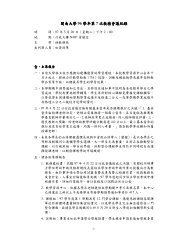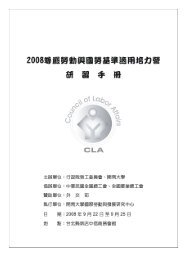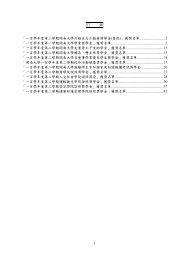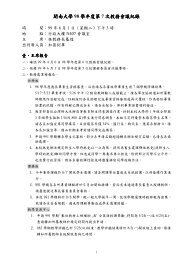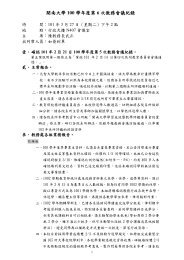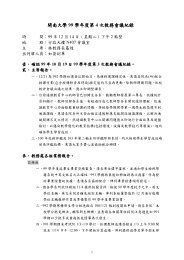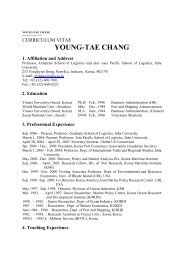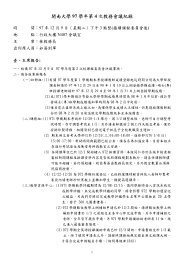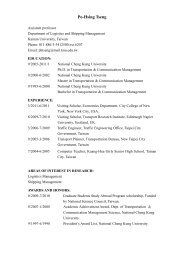活動手冊 - 開南大學
活動手冊 - 開南大學
活動手冊 - 開南大學
You also want an ePaper? Increase the reach of your titles
YUMPU automatically turns print PDFs into web optimized ePapers that Google loves.
The Influence of Learners’ Field Independent and Field Dependent<br />
Cognitive Styles on Contextualized Vocabulary Learning<br />
Yi-Zhen Jian<br />
Graduate Program<br />
Department of Applied Linguistics and Language Studies<br />
Chung Yuan Christian University<br />
Jia-Yeuan Lee, Ph.D.<br />
Associate Professor<br />
Department of Applied Linguistics and<br />
Language Studies<br />
Chung Yuan Christian University<br />
Yi-Chuan Hsieh, Ph.D.<br />
Assistant Professor<br />
Department of Applied Foreign Languages<br />
Ching Yun University<br />
Abstract<br />
Each individual has his or her preferred learning style that exists consciously or<br />
unconsciously to the learning process. People with different cognitive styles (Field<br />
Independence and Field Dependence) might possess different characteristics in<br />
language learning. For vocabulary learning, there is a growing interest on in several<br />
studies and greatly been recommended on foreign language learning. Thus, the purpose<br />
of this study aims to investigate the influence of Field Independent and Field Dependent<br />
style learners in contextualized vocabulary learning. As a total of 104 freshmen would<br />
attend in this study, this study used Group Embedded Figure Test (GEFT) to distinguish<br />
those subjects into FI or FD style learners. Owing to only 20 FD style learners were<br />
found within the subjects, therefore, 84 person of FI style learners are randomly<br />
sampling into 20 person. With respect to measure their achievement through<br />
contextualized vocabulary learning, the test of Vocabulary Knowledge Scale (VKS)<br />
intends to eliminate their previous knowledge on those target words. With regard to the<br />
data analysis, both quantitative and qualitative are performed in this study. After taking<br />
contextualized reading, researcher would measure their perception towards<br />
contextualized vocabulary learning by questionnaire. Results show that FI style learners<br />
outperform FD style learners on contextualized vocabulary learning. Also, overall, FI<br />
style learners show the slightly higher satisfaction than FD style learners. Therefore, in<br />
what degree this study could inference that FI style learners have the advantages than<br />
FD style learners on contextualized vocabulary learning. The results could carry one<br />
step further on educational implementation, especially for the EFL context.<br />
-16-



